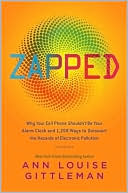Eavesdropping: An Intimate History
Who among us hasn't eavesdropped on a stranger's conversation in a theater or restaurant? Indeed, scientists have found that even animals eavesdrop on the calls and cries of others. In Eavesdropping, John L. Locke provides the first serious look at this virtually universal phenomenon. Locke's entertaining and disturbing account explores everything from sixteenth-century voyeurism to Hitchcock's "Rear Window"; from chimpanzee behavior to Parisian caf� society; from private eyes to Facebook...
Search in google:
Who among us hasn't eavesdropped on a stranger's conversation in a theater or restaurant? Indeed, scientists have found that even animals eavesdrop on the calls and cries of others. In Eavesdropping, John Locke provides the first serious look at this virtually universal phenomenon. Locke's entertaining and disturbing account explores everything from sixteenth-century voyeurism to Hitchcock's "Rear Window"; from chimpanzee behavior to Parisian café society; from private eyes to Facebook and Twitter. He uncovers the biological drive behind the behavior and highlights its consequences across history and cultures. Eavesdropping can be a good thing—an attempt to understand what goes on in the lives of others so as to know better how to live one's own. Even birds who listen in on the calls of distant animals tend to survive longer. But Locke also concedes that eavesdropping has a bad name. It can encompass cheating to get unfair advantage, espionage to uncover secrets, and secretly monitoring emails to maintain power over employees. In the age of CCTV, phone tapping, and computer hacking, this is eye-opening reading. Publishers Weekly In this entertaining study, Locke examines the ways in which privacy has changed over the course of history. Putting the Facebook generation in perspective, he contends that a lack of privacy made our distant ancestors feel secure "because they could see each other at all times" (as is the case with animals and birds). As societies became more sedentary, we built houses, but privacy within was also limited. At times, the church urged congregants to watch one another for wickedness, and information gleaned was used at trial. As our fellow humans became increasingly hidden, gossip and the "busy body" achieved social prominence. Snooping became frowned upon and, by 1601, using ill-gotten information for blackmail was a criminal act in England. Locke suggests that our love of stories is based on a less personal sort of eavesdropping: not only do we empathize with other people but we seek to refine our knowledge of the minds of others. As Locke has proven with his book, taking a closer look at the ordinary can bring surprising insights. (Aug.)
1. Passionate Spectators2. Under the Leaves3. Open Plan4. Reluctant Domestication5. Privacy, Intimacy, and the Selves6. Personal Power and Social Control7. What Will the Servants Say?8. Passionate Exhibitors9. Virtual Eaves10. Intimacy by Theft Notes Reference Index
\ Publishers WeeklyIn this entertaining study, Locke examines the ways in which privacy has changed over the course of history. Putting the Facebook generation in perspective, he contends that a lack of privacy made our distant ancestors feel secure "because they could see each other at all times" (as is the case with animals and birds). As societies became more sedentary, we built houses, but privacy within was also limited. At times, the church urged congregants to watch one another for wickedness, and information gleaned was used at trial. As our fellow humans became increasingly hidden, gossip and the "busy body" achieved social prominence. Snooping became frowned upon and, by 1601, using ill-gotten information for blackmail was a criminal act in England. Locke suggests that our love of stories is based on a less personal sort of eavesdropping: not only do we empathize with other people but we seek to refine our knowledge of the minds of others. As Locke has proven with his book, taking a closer look at the ordinary can bring surprising insights. (Aug.)\ \








